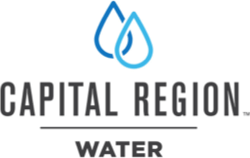On July 12, 2023, a collection of municipal interests filed an amicus brief urging the Pennsylvania Supreme Court to ensure that Commonwealth-owned properties pay stormwater fees like ordinary property owners. A team comprised of the Pennsylvania Municipal Authorities Association (PMAA), the Pennsylvania State Association of Boroughs (PSAB), the Pennsylvania State Association of Township Supervisors (PSATS), the Pennsylvania State Association of Township Commissioners (PSATC), the Pennsylvania Municipal League (PML), Capital Region Water, the Wyoming Valley Sanitary Authority, the Borough of Chambersburg, East Hanover Township Municipal Authority, the City of Philadelphia, the City of Lancaster, the City of Lock Haven, the City of Franklin, Susquehanna Township, Mt. Lebanon Township, Ferguson Township, the Borough of State College, and Ebensburg Borough joined together in preparing the brief.
The case, Borough of West Chester v. Pa. State System of Higher Education, saw the Commonwealth Court earlier this year rule that the stormwater charge of a home-rule borough was a tax that the Commonwealth was exempt from paying. West Chester immediately appealed to the Pennsylvania Supreme Court, where the dispute currently continues.
In its opinion, the Commonwealth Court justified its decision to exempt the state agency from paying stormwater bills because it merely burdened the municipal system with runoff rather than receiving a specific benefit. It also reasoned that West Chester’s stormwater program provided a benefit for everyone. And, for that reason, tax-exempt entities need not pay.
The decision came as a surprise to the many municipal entities across the Commonwealth implementing stormwater programs to comply with regulatory mandates and meeting the associated funding need. E. Lee Stinnett II of Salzmann Hughes, P.C.—which represents the above interests in preparation of the brief and serves as Solicitor to several of the involved municipalities—had the following to say: “Across the Commonwealth, municipalities and authorities have planned, managed, and implemented stormwater programs with supporting fees just like any other similar service. The Commonwealth required these programs to meet its obligations to the EPA under the Chesapeake Bay deal. Hypocritically, it has refused to pay its fair share and instead is attempting to pass the costs of managing its own stormwater onto ordinary ratepayers.”
In effect, the Commonwealth Court exempted some of the largest contributors of stormwater runoff because they carried a tax-exempt designation. “When we established the program and supporting fee, we met with residents and business owners throughout Harrisburg to make it as fair as we could,” said Capital Region Water (CRW) Chairman Marc Kurowski—CRW operates, maintains, and improves the water, wastewater, and stormwater systems for Harrisburg and its surrounding communities. He added, “Under this decision, the Commonwealth still receives the stormwater services we provide but doesn’t have to pay for it. That’s incredibly difficult to explain to all the other customers who worked with us from the beginning.”
Other issues exist besides fairness. It is unclear how local municipal entities would restructure their programs to adjust. Chief Executive Officer, Charlotte Katzenmoyer, explained some of the difficulties: “CRW provides stormwater management services for the Harrisburg area, which is littered with large, paved Commonwealth properties like the Capitol Complex. The Commonwealth not having to pay leaves a huge gap in our budget, and it is highly unlikely the Department of Environmental Protection will soften our permit requirements any time soon. The simple fact is that compliance costs money. These logistical problems are being shoved to the most local levels of government to figure out.”
The Borough of West Chester is scheduled to further brief its position in the litigation. Shortly following, the Commonwealth will present its arguments in favor of upholding the decision. For additional information, please contact E. Lee Stinnett II at (717) 234 – 6700.
